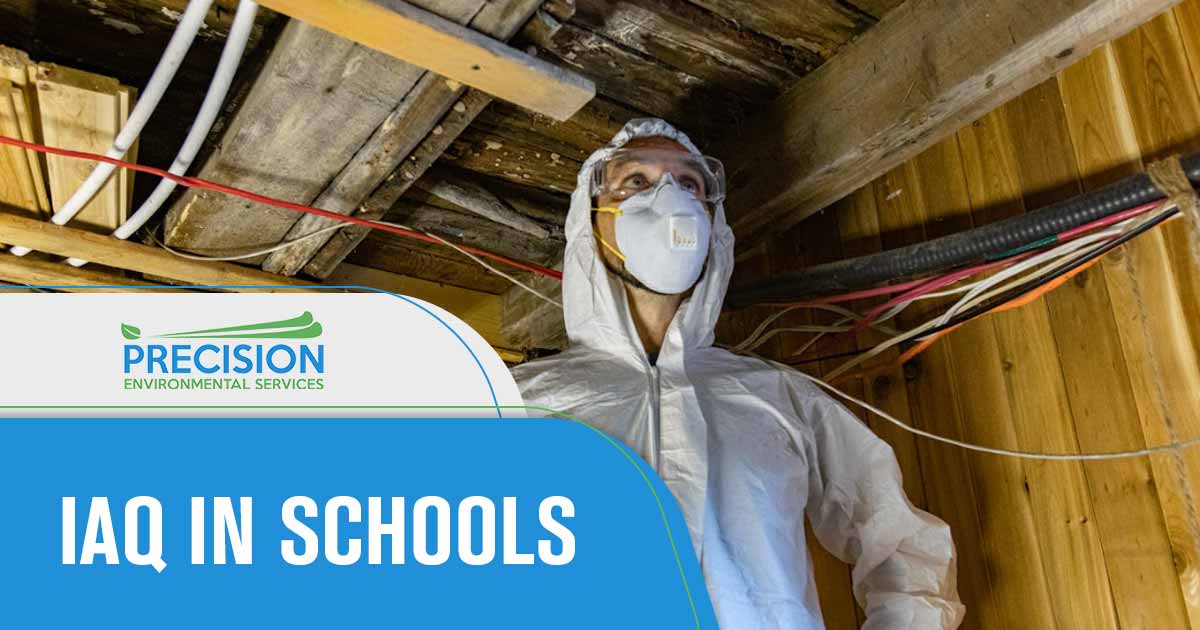Indoor air quality (IAQ) refers to the air quality within a building, and it is an important factor to consider when it comes to the health and well-being of students and teachers. Poor IAQ can lead to a range of health problems, including headaches, allergies, asthma, and respiratory infections, which can affect students’ ability to learn and perform at their best. On the other hand, good IAQ can help improve students’ cognitive function, test scores, and overall academic performance.
What factors impact IAQ in schools?
There are many factors that can impact IAQ in schools, including ventilation, air pollutants, and moisture. Let’s take a closer look at each of these factors and how they can affect IAQ and student performance.
- Ventilation: Proper ventilation is important for maintaining good IAQ in schools. It helps to bring in fresh outdoor air and remove indoor air pollutants, such as mold, dust, and volatile organic compounds (VOCs). Poor ventilation can lead to a buildup of these pollutants, which can have negative impacts on student health and academic performance.
- Air pollutants: There are many different air pollutants that can impact IAQ in schools, including mold, dust, VOCs, and allergens. These pollutants can trigger allergies and asthma, and they can also affect students’ cognitive function and ability to concentrate.
- Moisture: Moisture is another important factor to consider when it comes to IAQ in schools. Excess moisture can lead to the growth of mold and other fungi, which can cause a range of health problems. It can also damage building materials, leading to further IAQ problems.
How do you improve IAQ in schools?
There are several ways to improve IAQ in schools and ensure that students have a healthy and conducive learning environment. Some strategies that can be implemented include:
- Regular cleaning and maintenance: Keeping schools clean and well-maintained is an important way to improve IAQ. This includes regular cleaning and dusting of surfaces, as well as repairing any water leaks or moisture problems promptly.
- Proper ventilation: Ensuring that schools have proper ventilation is another key factor in improving IAQ. This can be achieved through the use of natural ventilation, such as windows and doors, or mechanical ventilation systems.
- Air purification systems: Installing air purification systems, such as air filters and air purifiers, can help to remove pollutants from the air and improve IAQ.
- Controlling humidity levels: Maintaining humidity levels within a healthy range (between 30% and 50%) can help to prevent the growth of mold and other fungi and improve IAQ.
- Regular IAQ testing: Regular IAQ testing can help to identify any IAQ issues and allow for timely intervention to improve the air quality.
Why is IAQ so important in schools?
The importance of good IAQ in schools cannot be overstated. Poor IAQ can lead to a range of health problems that can affect student health and academic performance. On the other hand, good IAQ can help improve student cognitive function and test scores, as well as overall academic performance. By taking steps to improve IAQ in schools, educators and administrators can help create a healthy and conducive learning environment for students.






